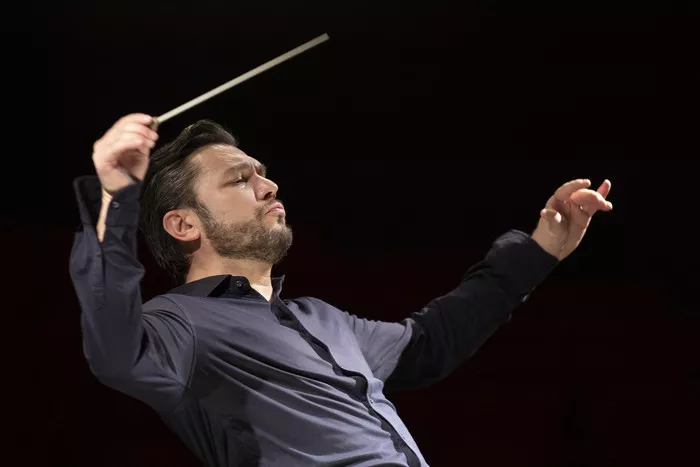In the pursuit of academic excellence, students are constantly seeking strategies to enhance their focus, concentration, and overall cognitive performance. While the world is inundated with various study techniques and tools, one timeless and often underestimated ally is classical music. The harmonious compositions of legendary composers have the potential to create an optimal environment for learning. In this comprehensive guide, we will delve into the realm of classical music, explore its benefits for studying, and present a curated list of the 20 best classical pieces to accompany your scholarly endeavors.
Understanding Classical Music
Classical music is a genre that spans centuries, showcasing the remarkable works of master composers such as Mozart, Beethoven, Bach, and many more. Characterized by its complexity, rich instrumentation, and adherence to structural forms, classical music offers a diverse range of compositions that cater to various emotional states and intellectual activities.
When engaging with classical music, it is crucial to understand the nuances of the genre. Unlike popular music, classical pieces often lack lyrics, allowing listeners to immerse themselves in the purely instrumental and harmonic elements. This absence of words can be advantageous for students, as it minimizes the potential distraction of lyrics and encourages a deeper focus on the task at hand.
Understanding Classical Music Benefits for Studying
1. Enhanced Concentration: Classical music has been shown to enhance concentration levels. The intricate patterns and melodies engage the brain, promoting a state of focused attention that is conducive to studying.
2. Reduced Stress and Anxiety: The calming and soothing nature of classical music can alleviate stress and anxiety, creating a more relaxed studying environment. This is particularly beneficial during high-pressure periods such as exams.
3. Improved Memory Retention: The structure and complexity of classical compositions can stimulate the brain, potentially aiding memory retention. This makes classical music an excellent companion for activities that require memorization, such as reviewing notes or preparing for exams.
4. Enhanced Mood: The emotional depth of classical music can positively impact mood. Listening to uplifting compositions can provide motivation and inspiration, making the study sessions more enjoyable.
5. Cognitive Stimulation: The intricate arrangements of classical music engage various cognitive functions, promoting mental stimulation. This can contribute to improved problem-solving skills and overall cognitive performance.
20 Best Classical Music Pieces for Studying
Now, let’s explore a curated list of the 20 best classical music pieces that are particularly well-suited for studying. These selections encompass a variety of styles, moods, and time periods, ensuring a diverse and enriching listening experience.
1. Ludwig van Beethoven – “Moonlight Sonata”
Renowned for its emotional depth, this piano sonata provides a serene backdrop for focused studying.
2. Wolfgang Amadeus Mozart – “Eine kleine Nachtmusik”
This lively and delightful serenade is perfect for creating an uplifting study atmosphere.
3. Johann Sebastian Bach – “Air on the G String”
Known for its simplicity and beauty, this piece offers a calming ambiance conducive to concentration.
4. Pyotr Ilyich Tchaikovsky – “Swan Lake Suite”
The enchanting melodies of this ballet suite can transport you to a world of creativity and productivity.
5. Antonio Vivaldi – “The Four Seasons”
Experience the changing moods and rhythms of each season, providing a dynamic backdrop for different study tasks.
6. Claude Debussy – “Clair de Lune”
This impressionistic masterpiece evokes a sense of tranquility and is ideal for creating a focused and serene study environment.
7. George Frideric Handel – “Water Music”
The regal and uplifting nature of Handel’s Water Music can infuse energy into your study sessions.
8. Johannes Brahms – “Intermezzo in A Major”
Brahms’ delicate intermezzo offers a peaceful and contemplative atmosphere, perfect for reflective studying.
9. Franz Schubert – “Ave Maria”
The serene and spiritual qualities of Schubert’s Ave Maria make it an excellent choice for moments of deep concentration.
10. Erik Satie – “Gymnopédie No. 1”
Satie’s minimalist composition provides a calming and meditative backdrop for focused and introspective study sessions.
11. Edvard Grieg – “Peer Gynt Suite No. 1”
Grieg’s evocative suite captures the essence of Norwegian folk music, offering a unique and engaging study experience.
12. Richard Wagner – “Ride of the Valkyries”
The powerful and dynamic nature of Wagner’s composition can provide a boost of energy during intense study sessions.
13. Camille Saint-Saëns – “Carnival of the Animals”
This whimsical and charming composition can add a touch of playfulness to your study routine.
14. Maurice Ravel – “Pavane for a Dead Princess”
Ravel’s hauntingly beautiful pavane creates a contemplative atmosphere, perfect for focused and reflective studying.
15. Giuseppe Verdi – “La Traviata Overture”
The dramatic and passionate overture of Verdi’s La Traviata can add intensity to your study sessions.
16. Igor Stravinsky – “The Firebird Suite”
Stravinsky’s vibrant and rhythmic suite is perfect for injecting energy and creativity into your study routine.
17. Dmitri Shostakovich – “Piano Concerto No. 2”
Shostakovich’s concerto combines complexity and emotion, making it an excellent choice for challenging and focused study tasks.
18. Jean Sibelius – “Finlandia”
Sibelius’ patriotic and uplifting composition can inspire a sense of determination and focus.
19. Aaron Copland – “Appalachian Spring”
The serene and pastoral qualities of Copland’s masterpiece provide a calming backdrop for intensive study sessions.
20. Gustav Holst – “The Planets”
Holst’s astrological suite offers a cosmic and expansive experience, perfect for stimulating creativity and imagination during study sessions.
Conclusion
Incorporating classical music into your study routine can be a transformative experience. The carefully selected pieces in this guide offer a diverse range of emotions, moods, and energy levels to suit various study tasks. Experiment with different compositions to find the ones that resonate with you the most. As you embark on this musical journey, you may discover that the harmonies of classical music have the power to unlock your full academic potential.

